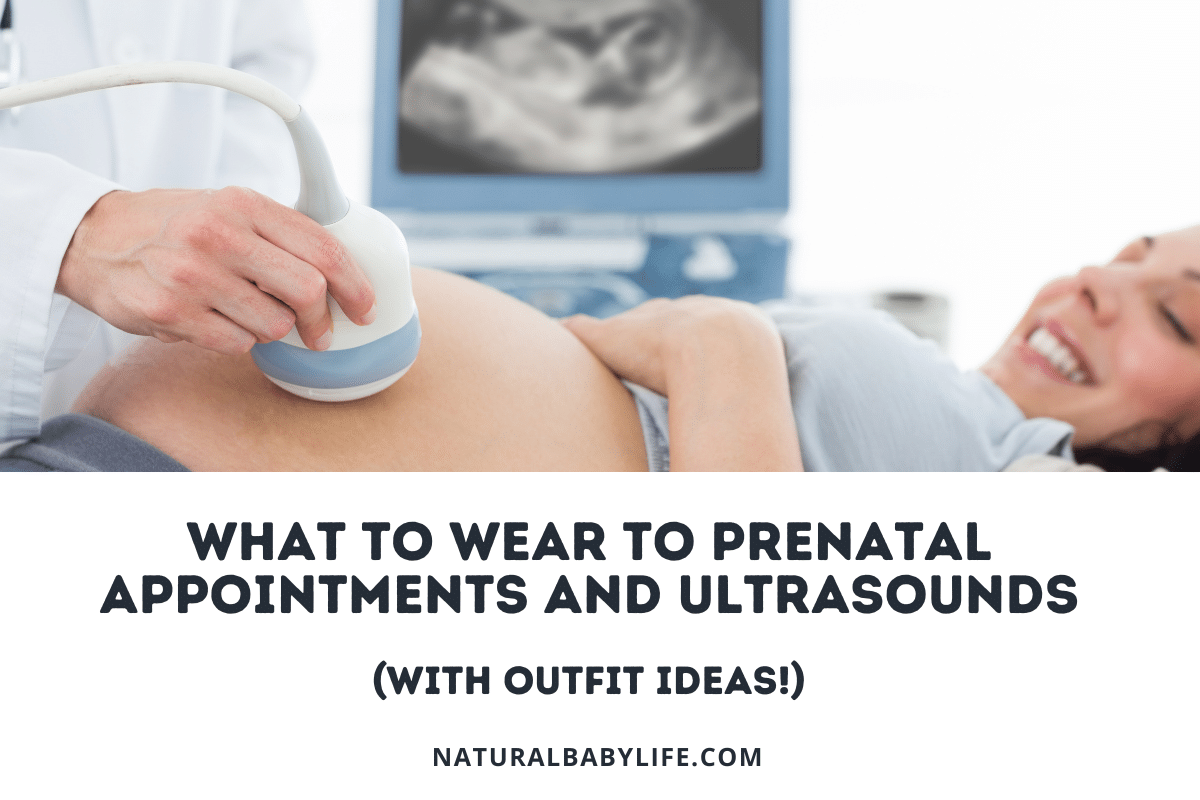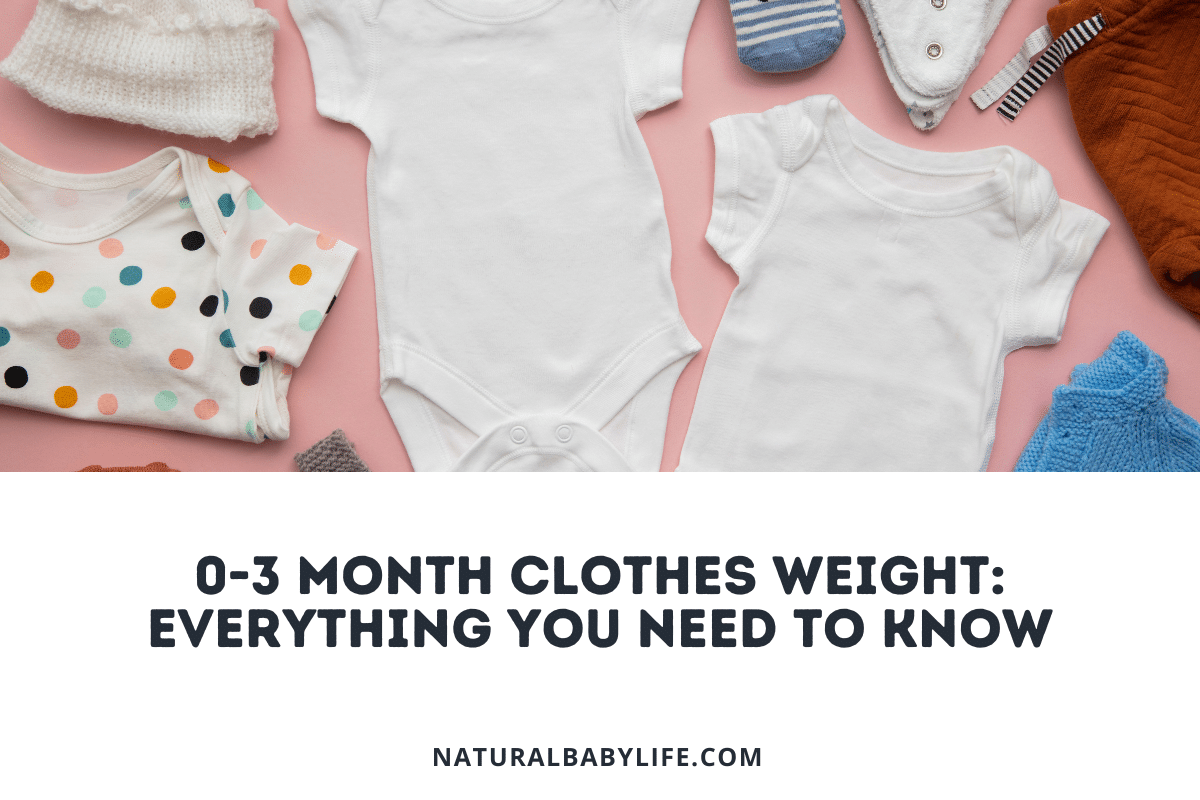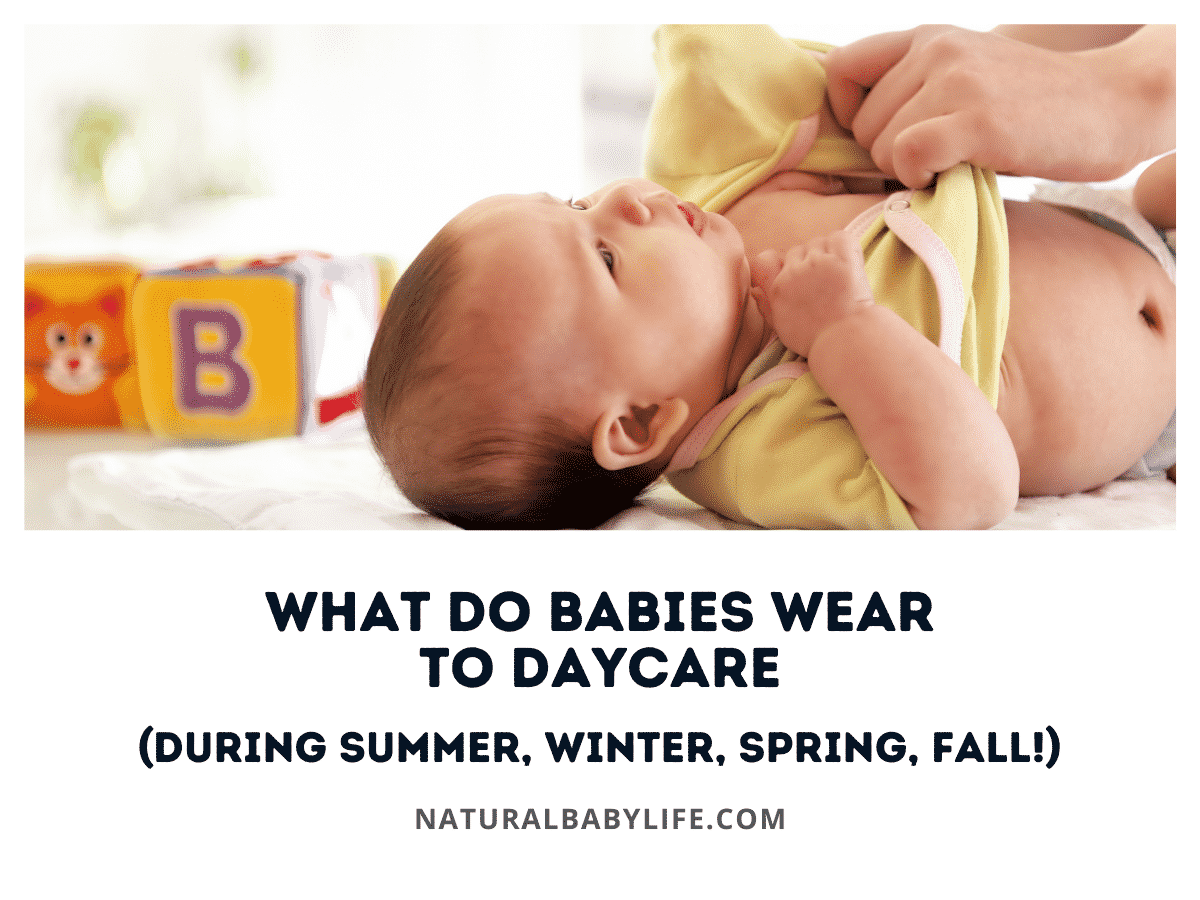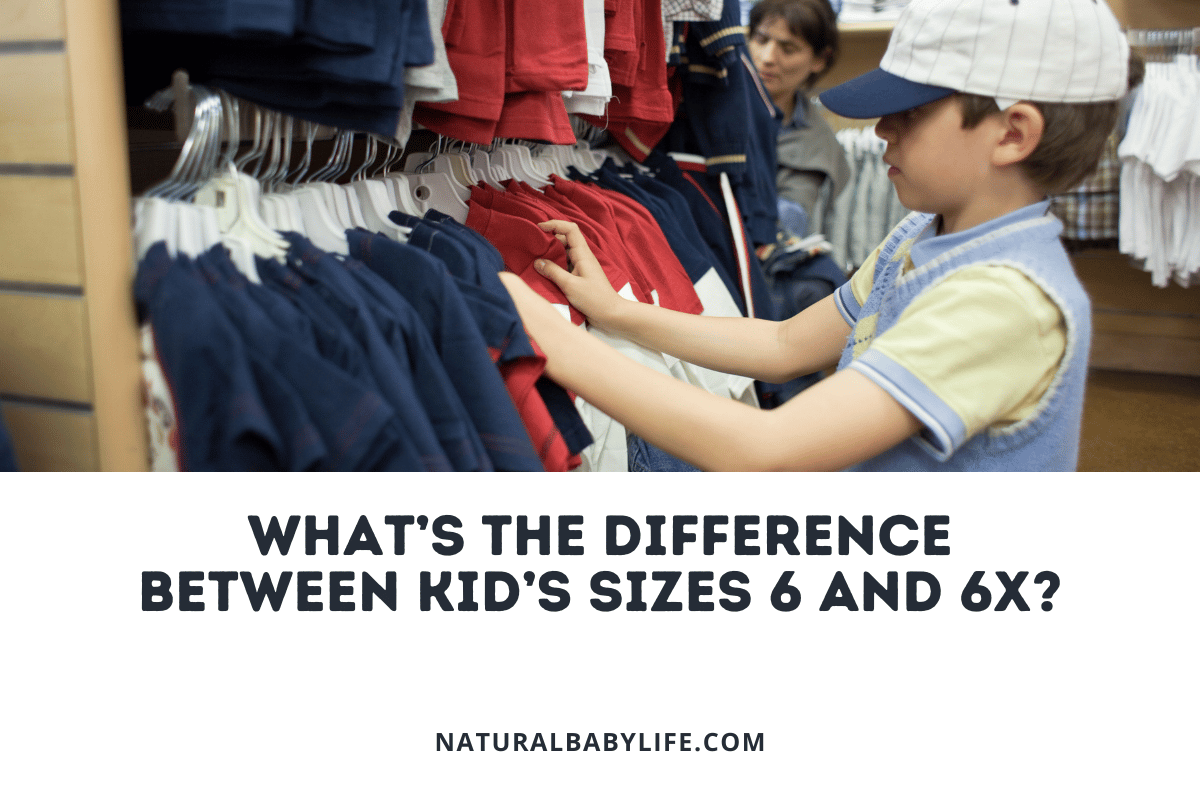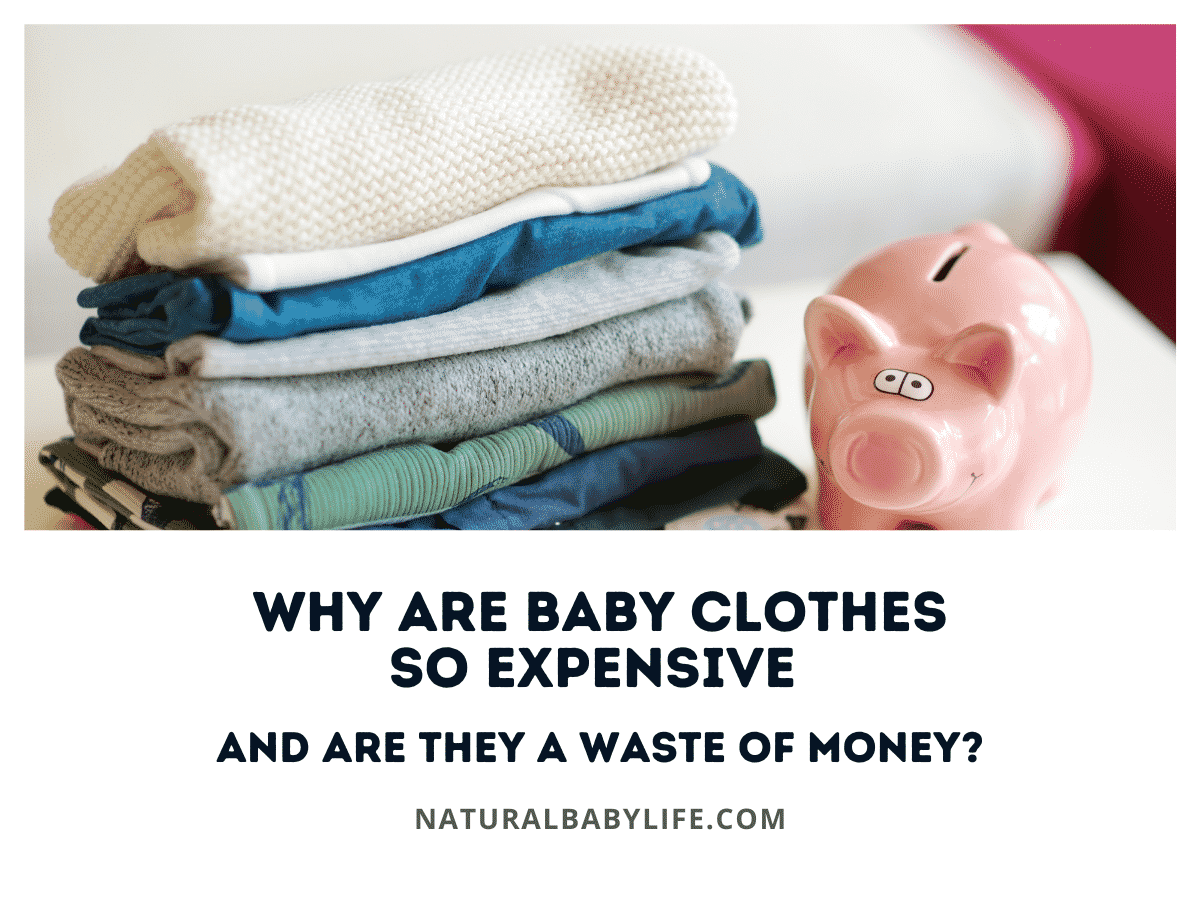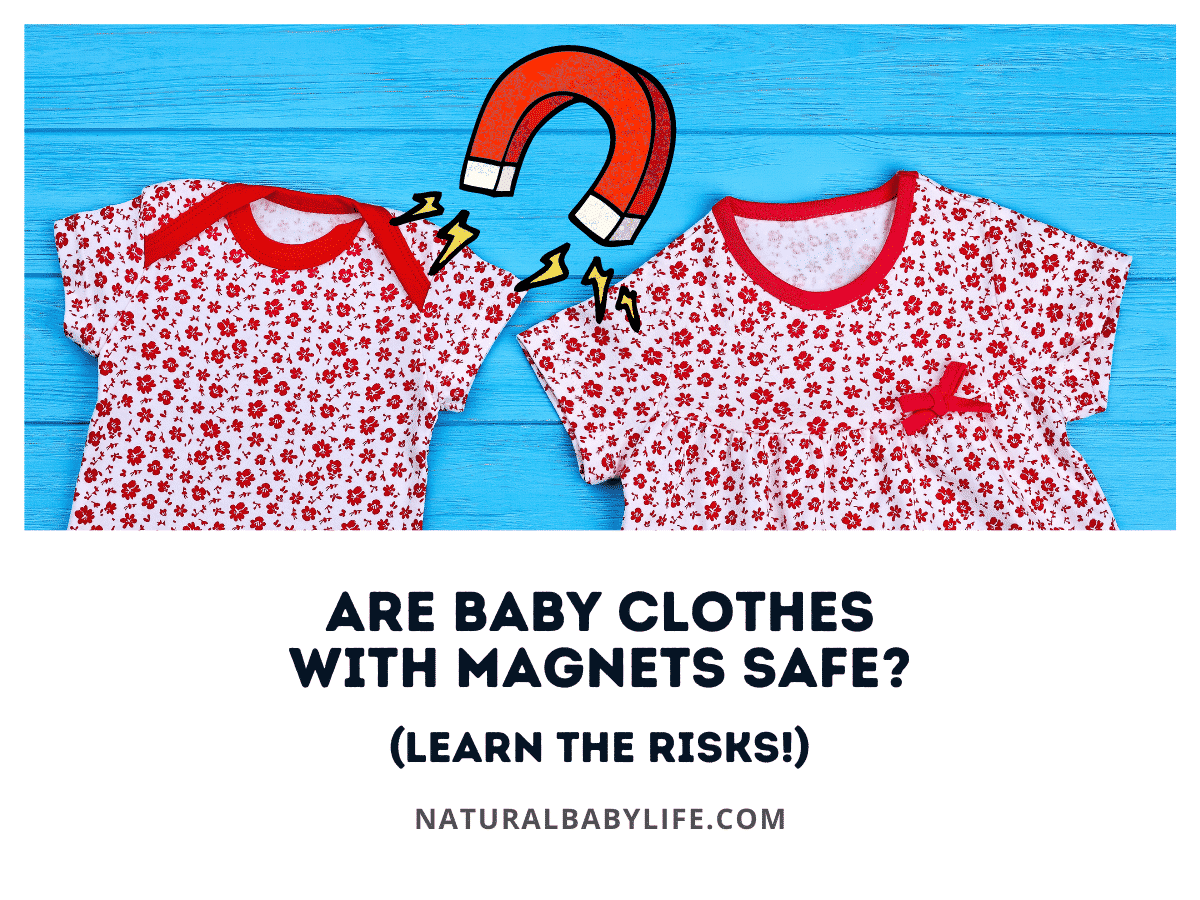Even though babies are small, their pile of dirty laundry can quickly become massive. Before you reach for your normal cleaning products to help tackle that pile of clothes, you should probably pause and think about whether fabric softener is safe for your baby.
Experts recommend avoiding fabric softener, including those marketing as being gentle enough for babies when you’re washing your little one’s clothes. The extra chemicals, scents, and dyes in fabric softener can irritate your little one’s skin, and it can decrease flame resistance in fabric, which can leave your baby at risk in the event of a fire.
Luckily, there are plenty of alternatives to fabric softener. Keep reading for some tips that will help keep your clothes clean and comfy, all while keeping your baby healthy and safe.
Table of Contents
Is it okay to use fabric softener on my baby’s clothes?
You’ve probably had the same laundry routine for years, but now that you have a baby, it might be time to rethink your cleaning habits.
Some of the cleaning supplies that are fine for you to use can actually be dangerous for your little one, and fabric softener is no exception. Check out the ingredients list on your fabric softener container, and you’ll be met with a long list of chemical compounds. While many of these ingredients don’t cause any problems, there are a few that can be dangerous.
Fabric softener gets its softening power by coating your clothing in a fatty layer of quaternary ammonium compounds. While these ingredients do help your clothes stay smooth and soft, they’ve also been shown to cause asthma.
Some softeners also contain other questionable ingredients, including formaldehyde and other chemicals known to cause allergic reactions or even cancer at high enough levels.
Not only can fabric softener cause skin irritation or health concerns for your baby, but it can also damage your little one’s clothes.
Clothing is often designed to be flame resistant in order to keep kids safer in the event of a fire. Recent studies have discovered that fabric softeners can actually decrease the flame resistance of fabric, which can be catastrophic in the event of a home fire. Cotton, a type of fabric often used in baby clothes, is most likely to experience a severe decrease in flame resistance, which is particularly troubling.
Luckily, even if you’ve washed your baby’s clothes with fabric softener, the damage it has caused can be reversed.
Not only will washing baby clothes with just detergent remove any of the dangerous chemicals leftover on the clothing from fabric softeners, but detergent-only washes can also restore a fabric’s flame resistance to its normal, pre-softener levels.
Can I use fabric softener on newborn clothes?
The younger a baby is, the more sensitive their skin is likely to be.
Newborns are particularly vulnerable to any extra chemicals, dyes, or scents, including those found in fabric softener. If you’re washing your newborn’s clothes, it’s best to avoid fabric softeners entirely.
Even specially formulated ‘baby’ or ‘sensitive skin’ fabric softeners will likely still contain ingredients that are harmful to your little one’s health.
When can you use fabric softener on toddler clothes?
As your baby gets older, their skin should become less sensitive to chemicals and fragrances. Once your child hits the toddler years, you might wonder if it’s safe to start using fabric softener on their clothing again.
For some toddlers, fabric softener won’t cause any visible skin irritation. While that’s a positive sign, it doesn’t necessarily mean that the softener is safe. Many brands of fabric softener contain chemicals that are known to cause asthma or even cancer after excessive exposure.
It’s safest to avoid using fabric softener entirely, regardless of the age of your baby.
If you do choose to use fabric softener on your toddler’s clothes, make sure you keep a close eye on the transition.
If you notice a rash or any other skin irritation after switching to fabric softener, you should stop using it immediately. Childhood eczema (skin sensitivity and dryness) can last until age 4 or later, so try not to get frustrated if your toddler’s skin stays stubbornly sensitive for awhile.
Do you use fabric softener with Dreft?
Dreft is a brand of laundry detergent that is specially formulated for use on baby clothes.
Many parents choose to use Dreft because it’s designed to soften and brighten clothing without the need for additional fabric softener. In fact, Dreft cautions parents against using any sort of fabric softener in addition to their detergent, as fabric softener can hamper the flame-resistance of clothing.
The detergent is free of harsh chemicals, and comes in newborn, active baby, and high-efficiency varieties.
Can I use ANY fabric softener on baby clothes?
Traditional fabric softener shouldn’t be used on baby clothes.
Not only are many brands of fabric softeners irritating to a baby’s skin, but the ingredients in the softeners can also make clothing less flame-resistant.
There are some natural ways to soften a baby’s clothes, but if you plan on using a traditional fabric softener, some brands might work better than others.
Downy
If you’re looking at Downy-brand laundry products, the company does offer a “free and gentle” fabric conditioner which you can pick up here on Amazon.
This fabric softener is hypoallergenic and doesn’t contain any dyes or perfumes that might irritate your baby’s skin. Because the conditioner softens fabric, though, it will still impact the fire-resistance of your little one’s clothes.
Lenor
Lenor and Downy are actually the same company; while the brand is known by Downy in the United States, it’s called Lenor in Europe, Russia, and Japan.
Lenor offers a Sensitive Pure Care fabric softener with similar ingredients to Downy’s “free and gentle” conditioner. While marketed for babies, Lenor’s gentle fabric softener still contains fragrances that can irritate your baby’s sensitive skin.
Snuggle
Snuggle has several fabric softener varieties to choose from, although only one is labeled as hypoallergenic.
Even though it’s marketed for sensitive skin, the fragrances in the softener (fruity and floral notes, according to the website) might still irritate your baby.
Ensueño
The Ensueño brand also has a hypoallergenic version of their fabric softener.
It comes in light, fruity fragrances (lemon, orange, strawberry, milk, honey and sandalwood,) which might make it irritating for a baby’s extra-sensitive skin.
Best fabric softener for babies with sensitive skin
For babies with sensitive skin, including those who suffer from eczema, it’s actually best to avoid any fabric softener at all.
Even hypoallergenic, gentle fabric softeners can irritate skin that is particularly sensitive. While fabric softener can be beneficial for some types of clothing, it’s not a necessary part of the laundry process.
If you’re looking for softer clothes for your baby, there are plenty of natural fabric softener alternatives that won’t irritate your little one’s sensitive skin.
Is it okay to use a fabric conditioner on my baby’s clothes?
Fabric conditioners are very similar to fabric softeners. Both products claim to fight wrinkles, reduce static, and soften your laundry. Fabric conditioners go the extra mile by battling the fading, pilling, and stretching of your clothes; essentially, they ‘condition’ your clothing to keep it in tip-top shape.
Neither fabric conditioners nor fabric softeners are recommended for use on a baby’s clothes.
Fabric conditioners can actually contain more chemicals than softeners, which means the conditioners might irritate your little one’s skin even more. Fabric conditioners also reduce the flame-resistance on fabric, which can put your baby at added risk in the event of a house fire.
Is it okay to use dryer sheets on my baby’s clothes?
Dryer sheets are made of the same types of ingredients as fabric softeners: lubricants, liquid softeners, and fragrances.
While these ingredients can soften your clothing and reduce the static after a load of laundry, they can also be harmful to your baby.
The fragrances and other chemicals in dryer sheets can irritate your baby’s sensitive skin, causing rashes or eczema flare-ups. Dryer sheets can also minimize the flame-resistance in your baby’s clothing, which can be a safety issue in the event of a fire.
How can I soften baby clothes without fabric softener?
While it’s natural to want your baby’s clothes to be extra soft, your regular bottle of fabric softener might not be the way to go. Traditional fabric softeners are chock-full of chemicals, including some that can be extra dangerous to your little baby.
Whether you’re looking to skip fabric softener until your little one gets a bit older, or trying to eliminate your use of chemical softeners forever, there are plenty of natural alternatives to the store-bought brands.
Not only can these natural fabric softeners keep your clothing in tip-top shape while keeping your baby healthy, but natural softeners are often much cheaper than their name-brand counterparts (not to mention better for the environment, too!),
Vinegar
Vinegar is the queen of natural cleaning products, and its kingdom includes the laundry room.
To use white vinegar as a natural fabric softener, just add one-quarter to one-half cup of vinegar to the fabric softener dispenser unit in your washing machine.
Not only will the vinegar freshen and fluff your clothes without any of the harsh chemicals found in traditional softeners, but it also acts as an extra disinfectant for both your clothes and your washing machine!
And don’t worry; your clothes won’t smell like vinegar after the wash cycle has finished.
Baking Soda
Baking soda is another great kitchen ingredient that doubles as a cleaning agent.
Adding half a cup of baking soda to the rinse cycle of your laundry can naturally soften your clothes. Not only is this fabric softener fragrance-free (which means it’s great for babies), baking soda won’t mess with the flame-resistance of clothing.
Sunshine
While it’s not always convenient, air-drying your clothes can actually keep them soft and in great shape.
You’ll get a nice, fresh scent without resorting to artificial fragrances, and hanging your clothes on the line will reduce the static caused by an electric clothes dryer.
Keep in mind that air-drying can leave clothes feeling a bit stiffer than normal. To combat this, you can run clothing in the dryer for 10 minutes before hanging it out to dry.
Dryer Balls
There are plenty of natural dryer balls that can reduce static and soften clothes.
While dryer balls won’t add any extra fragrance to your clothes, they’ll soften them without irritating sensitive skin or damaging flame-resistant fabrics.
Wool dryer balls are easy to purchase online (and pretty cheap too), and almost as easy to make yourself. You can also test out a ball of aluminum foil, plastic dryer balls, or (my personal favorite) a tennis ball.
The best part? Dryer balls are reusable, so you won’t need to keep stocking up on fabric softener every time you hit the store.

![Can I Use Fabric Softener on Baby Clothes [With Natural Alternatives]](https://naturalbabylife.com/wp-content/uploads/2021/01/can-i-use-fabric-softener-on-baby-clothes_featured.png)

